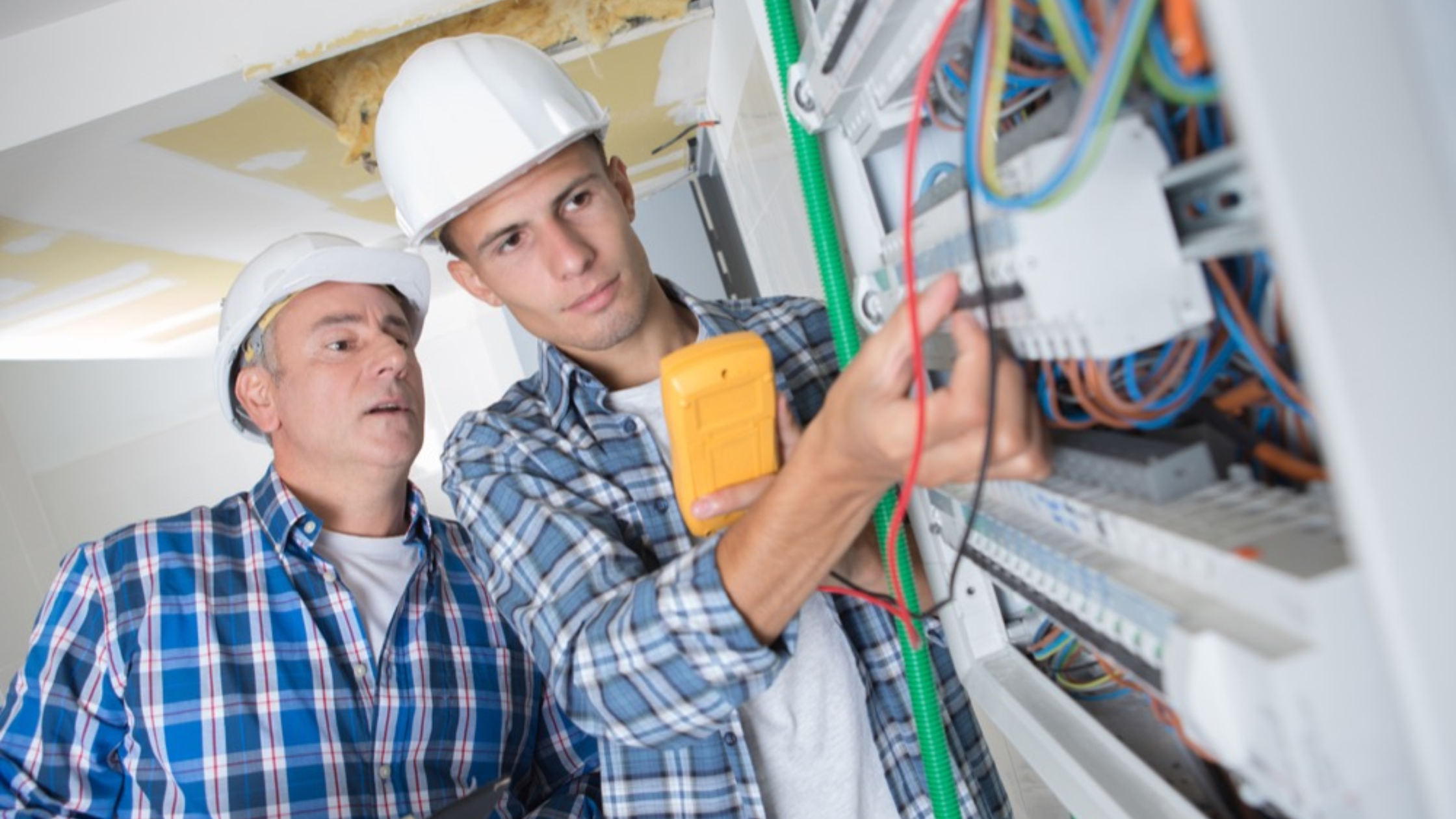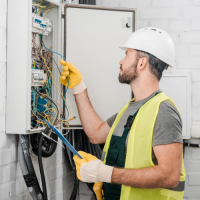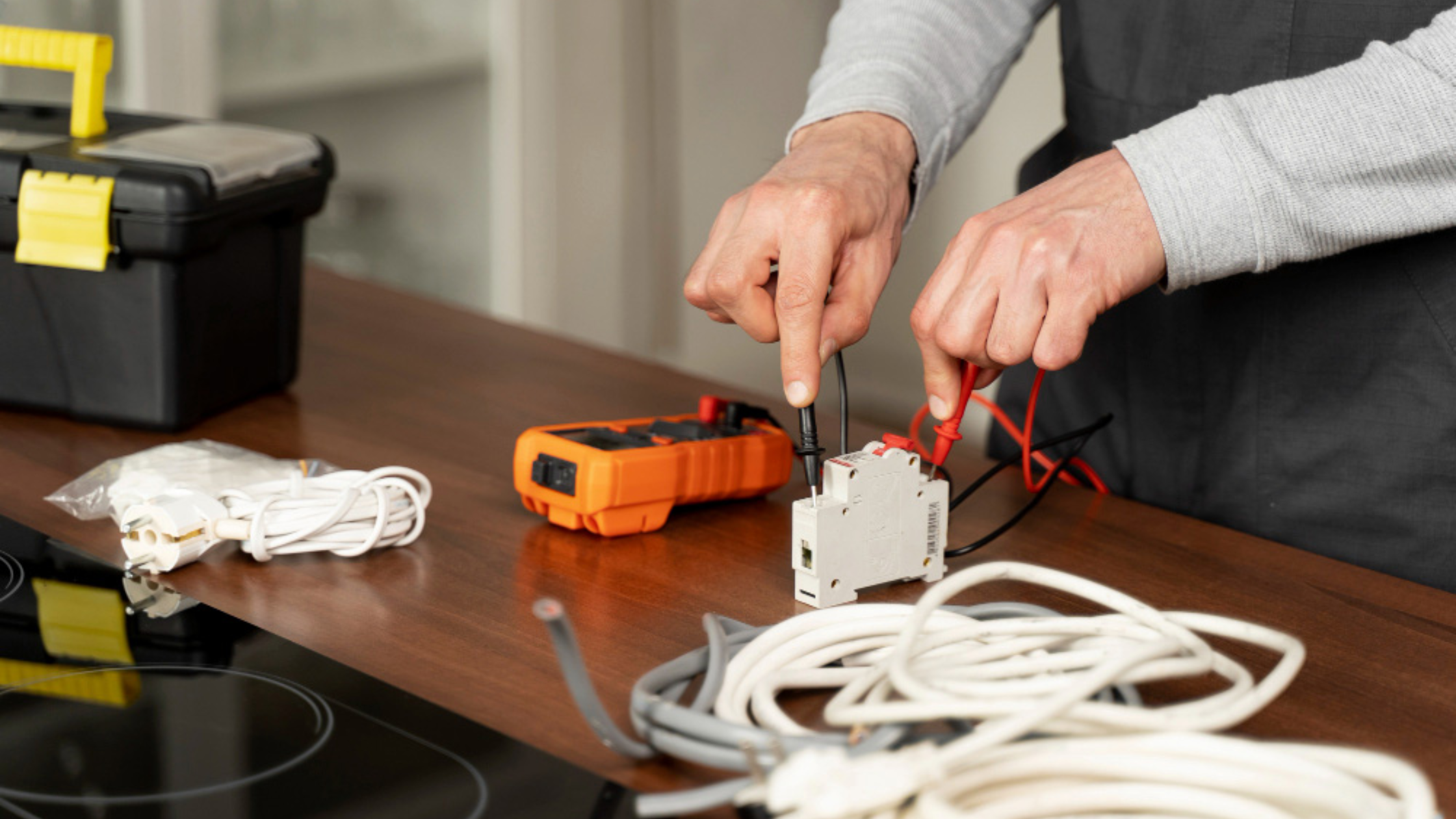Certified Electrician vs Licensed Electrician: Who Should You Call First?

Strong 8k brings an ultra-HD IPTV experience to your living room and your pocket.
Introduction:
Let’s say something suddenly goes wrong with your power. The lights flicker. An outlet sparks. Or maybe you’re planning to upgrade your lighting.
Whatever the case, you search for help, and now you're staring at listings that say “certified emergency electrician” and others that say “licensed electrician.” The difference may not seem important at first, but choosing the right person matters more than you might think.
Some jobs only require basic help. Others are more serious and need someone with legal approval. And when it comes to electrical work, safety, experience, and the right qualifications all play a big role.
What Does Certified Really Mean?
When an electrician is certified, it means they’ve completed training in a specific area. For example, they may have learned electrical safety, how to work with high-voltage equipment, or how to install solar panels. Once they finish that training, they receive a certificate. These certificates are offered by training centers or national organizations, not by the government.
There are many types of certification programs. Some cover cable splicing, electrical maintenance, green energy, solar installation, or instrumentation. Others focus on low-voltage systems or specialized electrical equipment. Some certifications are even related to computer service or standardized task evaluation.
Earning one or more electrical certifications helps electricians grow in their field and open up more job opportunities. It shows they’ve put in extra effort to learn beyond the basics. Still, being certified doesn’t always mean they’re legally allowed to perform electrical work on their own. That’s where licensing comes in.
What a Licensed Electrician Is Allowed to Do
A licensed electrician has met all the legal steps to work as a professional in their state or city. This usually means they’ve completed a certain number of work hours, passed exams, and taken part in an apprenticeship program. They’re officially approved to work on homes, buildings, and commercial properties.
Licensing rules depend on the state, and sometimes even the city. In North Alabama Decatur, an electrician may need approval from a local licensing board or the state’s electrical authority. In some areas, both the city and county have different licensing requirements. That’s why it’s important for electricians to know what rules apply where they work.
There are also different license levels. A master electrician has more experience and is often in charge of larger projects. Whether they’re rewiring a home or updating an entire electrical system, licensed professionals can take on jobs safely, legally, and without needing supervision.
How Certification and Licensing Are Different
It’s easy to mix these two up, but they’re not the same. A certified electrician has learned a new skill and received a certificate to show it. A licensed electrician has legal approval to work on homes and buildings based on state or local rules. One shows training; the other gives legal permission.
To give an example, a certified electrician might be highly skilled at installing solar panels or working on a low-voltage system. But if a job requires a permit, or needs to pass an inspection, only someone with a valid electrical license can legally do the work.
So while both types of professionals are important, licensed electricians are the ones you should trust for full-service jobs, especially if safety and legal compliance are involved.
Benefits of Hiring a Certified Electrician
Hiring a certified electrician has its own advantages. These professionals bring specialized knowledge to the table. They may be trained in the latest energy systems, safety practices, or smart home technology. That extra training can make a real difference—especially in unique projects.
Because they’ve focused on particular skills, certified electricians often complete jobs faster and with fewer mistakes. If your project involves a certain type of electrical equipment or task—like solar installation, data wiring, or electrical inspection—a certified technician can offer deeper insight.
Their knowledge also helps reduce the chances of accidents. Many certifications include electrical safety training, which means they follow strict rules to keep the site safe.
Benefits of Hiring a Licensed Electrician
On the other hand, hiring a licensed electrician means you’re working with someone who can handle everything. From applying for permits to completing big repairs, they’re legally allowed to take on all types of electrical jobs. They also carry insurance, so if something goes wrong, you’re protected.
Licensed electricians understand the building codes in your area. That matters more than you might think—especially if you're doing renovations or new construction. Their work must pass inspection, which gives you peace of mind that the job is done right.
They’re also better equipped for emergency situations. If your power goes out late at night and you need an emergency electrician in North Alabama Decatur, a licensed pro is often your safest and most reliable option.
Understanding Electrical License Requirements
The process to get an electrical license depends on where you live. In most states, working without one is not allowed. Electricians who ignore this can face fines or lose their right to work. Most businesses and homeowners won’t hire someone who isn’t licensed.
To get a license, an electrician may need to:
- Be at least 18 or 21 years old
- Complete a certain number of work hours or an apprenticeship
- Pass exams on electrical safety, theory, or the national electrical code
- Provide proof of insurance, like general liability or workers' compensation
Some states even require two licenses—one for the trade itself and another for working as an electrical contractor. So if an electrician wants to run their own small business, they may need to hold both.
The key takeaway? Not all electricians can legally work in all areas unless they’ve met local or state licensing rules.
So, Who Should You Call First?
If you're doing a small job and local laws allow it, a certified electrician may be enough, especially if the task is very specific. But for anything larger, anything involving permits, or anything that could impact your home’s electrical system or safety, it’s always smarter to call a licensed electrician.
Licensed electricians bring both skill and legal backing. Certified electricians bring extra training and technical insight. In many cases, the best professionals hold both credentials.
No matter what, always select professional electricians for safety. Check their license, ask about their experience, and don’t be afraid to confirm they’re qualified for your specific needs.
Reliable Electrical Services In Decatur Is What You Need
Whether you're upgrading your panel, installing new outlets, or dealing with a power issue in North Alabama Decatur, the person you hire matters.
Choosing between a certified electrician vs licensed electrician isn’t about titles, it’s about training, legality, and protecting your home.
For full electrical services, always verify credentials, ask the right questions, and know when a license is more than just a piece of paper, it’s your first step toward a safer job well done.
Note: IndiBlogHub features both user-submitted and editorial content. We do not verify third-party contributions. Read our Disclaimer and Privacy Policyfor details.




